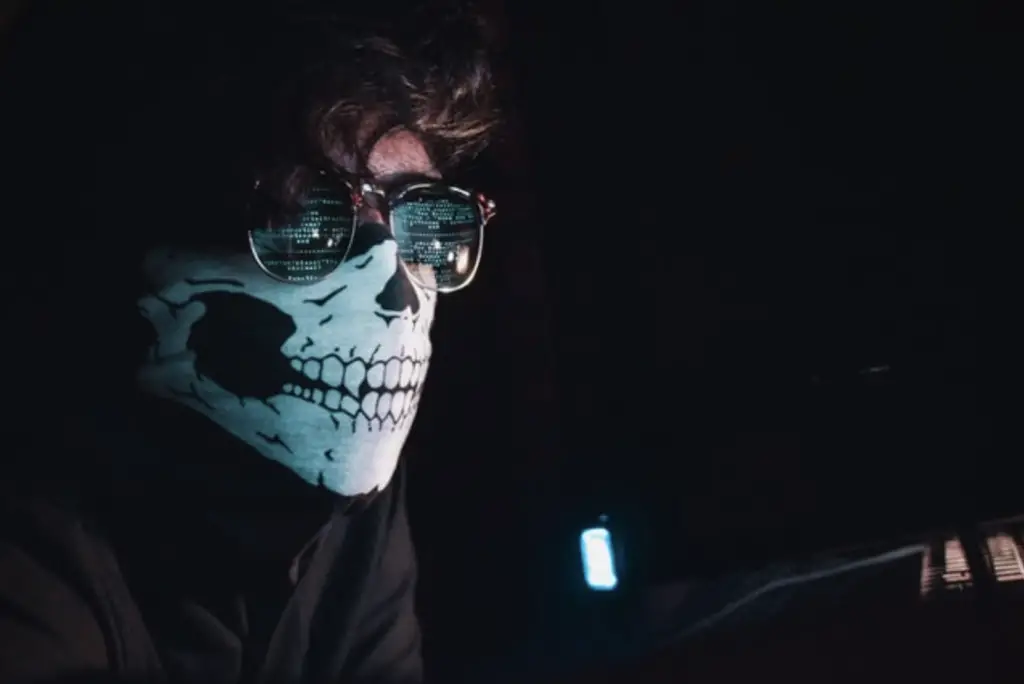
It’s tough to go three for three. Michael Cuesta made two excellent and criminally underseen films, “L.I.E.” and “Twelve and Holding.” “L.I.E.” has terrific performances by Brian Cox and a very young Paul Dano, and it injected Donovan’s 1968 song “Hurdy Gurdy Man” with a sense of dread that comes back to me every time I hear it.
His third film, “Tell-Tale,” which premiered at the Tribeca Film Festival, is unfortunately a half-baked mess. Cuesta’s extremely talented and the film has much to offer, including some very intense moments (like a torture scene after which the Tribeca screening had to be stopped for fifteen minutes while police and EMTs swarmed into the theater to aid and remove the audience member who had some sort of seizure or heart attack – true story!), but it doesn’t work as a whole. This revision of the classic Poe tale hasn’t been fully imagined.
Terry (Josh Lucas), a forlorn single father and “stay-at-home IT guy,” recuperates from a heart transplant while raising Angie (Beatrice Miller), whose rare genetic disorder causes the tendons and ligaments in her body to calcify into bone. . . I think. He’s also romancing Angie’s absurdly gorgeous doctor, Liz (Lena Headey), whose rare genetic good fortune causes her face to have great bone structure. So life seems pretty livable for Terry, except now and then he gets puzzling visions. They eventually compel him to track down and brutally murder the paramedics present at the death of a man named Vieillard, whose heart now resides in Terry’s chest.
Sidling up to Terry along the way, and taking a weird personal interest in the deaths of the paramedics, is a sweaty cop named Van Doren, played by the great Brian Cox. He gets the best lines – the only really good ones, in fact. (Lena Headey gets the worst, but that’s another story.) Whenever things turn out like that, I start to wonder whether the screenwriter just had more fun with one character than the rest, or whether the actor just started making good s**t up on the set. In any case, as Terry tries to figure out who Vieillard was and why he died, the Heart With A Mind Of Its Own keeps stirring up trouble. Some villains appear out of the shadows to do nasty things with knives.
It’s clear that a good deal of thought has gone into some less obvious aspects of the film. To be honest, I really liked the lighting. Somebody seems to have put a lot of thought into how red the light is in every scene. And I liked how Terry spends much of the film wearing a ratty old Nantucket t-shirt; the sketched outlines of the island look like a medical drawing of a human heart laid sideways. But that’s about it.
Unfortunately, Cuesta lacks two crucial things that appeared in his earlier films: a uniformly excellent cast and a strong script. Brian Cox is great in anything (I’m particularly enthusiastic about his abilities after just seeing “The Escapist,” the killer Rupert Wyatt film that Cox produced and starred in, my favorite film this year so far). And he’s the only cast member who stands out in “Tell Tale.” Josh Lucas, who I liked very much as the violent, avaricious uncle in David Gordon Green’s “Undertow,” just doesn’t sell it here as a sympathetic lead. He’s a talented actor but (too) deeply reptilian. And poor Lena Headey, who could play Helen of Troy, is way out of place as Dr. Liz. Who is this Vogue-ready genetic disease specialist, and what on earth is she doing with sad, weaselly Terry? And, is anyone really expected to buy the film’s nonsensical twist-ending revelation, which Headey delivers in a grim, unconvinced monotone?
Actually, by that time, everywhere you look there’s a gaping chest wound of a plot hole. A major character implausibly survives a direct injection of lethal chemicals into his heart. (The reasons for this are presumably supernatural, but since the powers and capacity of the supernatural entity in the film aren’t clearly established, it feels like cheating.) The villains fail to recognize and identify Terry even though they’ve had direct, and fairly intimate, contact with him in the past. The motive behind Vieillard’s murder is outlandish, even if it’s thematically appropriate.
And what’s with the villains? It would be unfair of me to reveal what they’re up to, but it’s revealing nothing to lament the fact that they are completely undeveloped. I have no idea what their names were. The central villain appears only in the climactic scene, briefly articulates a facile justification for his bad behavior, then tortures the f**k out of somebody. At no prior point has the film even alluded to the existence of this villain. It’s like pages just fell out of Dave Callaham’s script. I’ve rarely seen a film punt so blatantly on such an important part of the story.
Regardless, I’m curious to see whatever Cuesta makes next time. Ideally he’ll have much more to work with.

